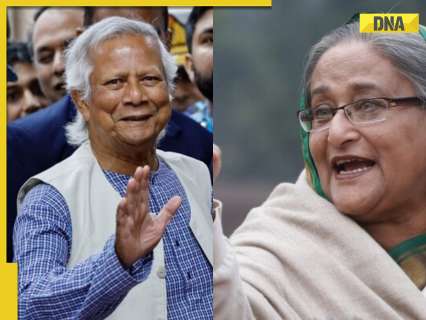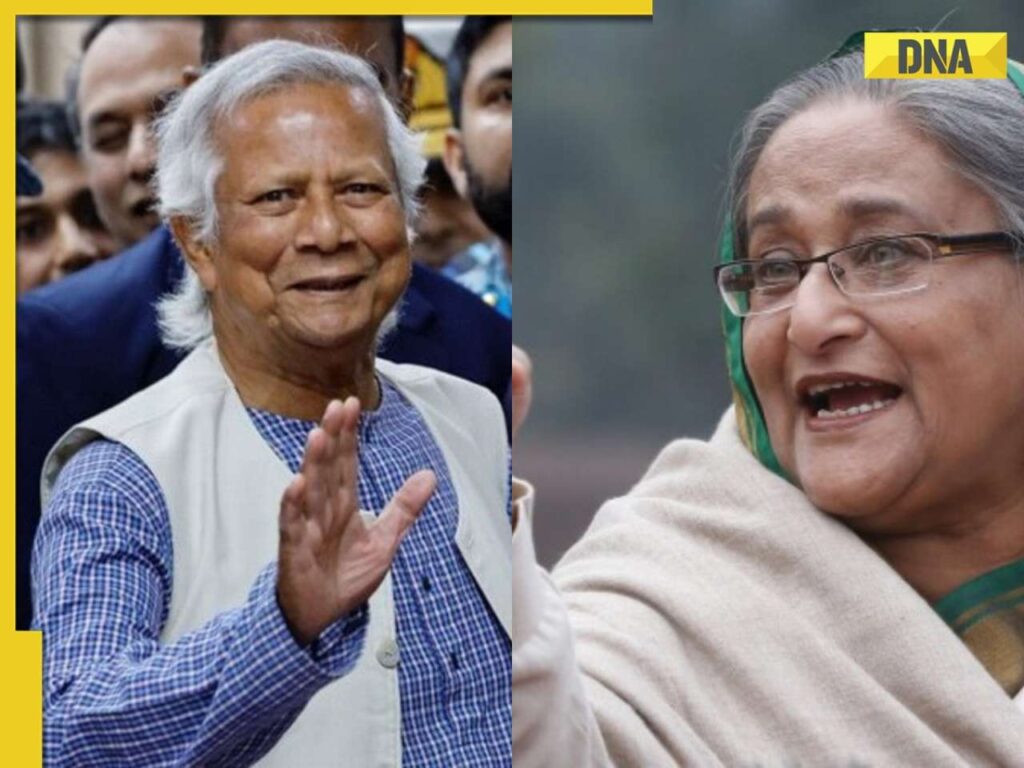
Bangladesh recently experienced tumultous student protests, resulting in the collapse of the government led by Prime Minister Sheikh Hasina. Large scale protests and political turmoil not only led to the fall of Hasina’s government, but also prompted her to flee the country.
Muhammad Yunus and Sheikh Hasina
Bangladesh recently experienced tumultous student protests, resulting in the collapse of the government led by Prime Minister Sheikh Hasina. Large scale protests and political turmoil not only led to the fall of Hasina’s government, but also prompted her to flee the country.
The protests soon turned into violence against the minority communities, with the extremists attacking houses, temples, offices, etc. A total of 2,010 incidents of attacks on minorities were reported between August 4 and 20. Among the incidents, homes of 157 families were attacked, looted and vandalised, says a report by the Hindu Buddhist Christian Unity Council.
Just months after such violent protests in the neighbouring country, signs of a second wave of student protests are emerging in capital Dhaka, putting at risk the future of present interim government led by noble laureate Muhammad Yunus.
On Monday, i.e., January 27, hundreds of students from seven affiliated colleges of Dhaka University descended to streets to stage a massive protest, touting six demands and setting a deadline for their fulfilment.
In case the demands remain unfulfiled, the students have warned of large scale protests.
What are the demands?
The students have been demanding the separation of their colleges from Dhaka University to establish an independent university. They have also sought an appointment with Muhammad Yunus to discuss the matter.
Sajib, the General Secretary of “Students Against Discrimination” at Dhaka College, remarked, “Students have mobilized on the streets, and road blockades have been established in various areas. The outcomes are uncertain. If our demands are not fulfilled, we will declare more stringent measures”, as per a report by india.com.
The outlet has also cited political analyst Professor Najmul Ahsan Kalimullah, who opined that the growing unrest among students is not a good sign, adding that the consequences may be “severe”.

